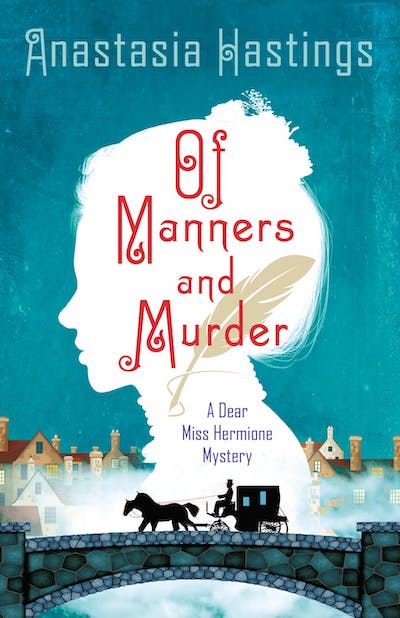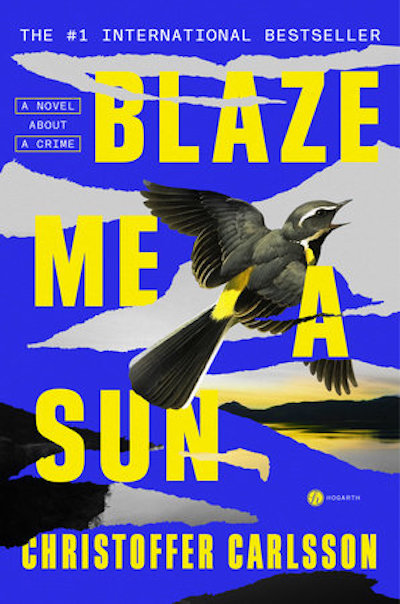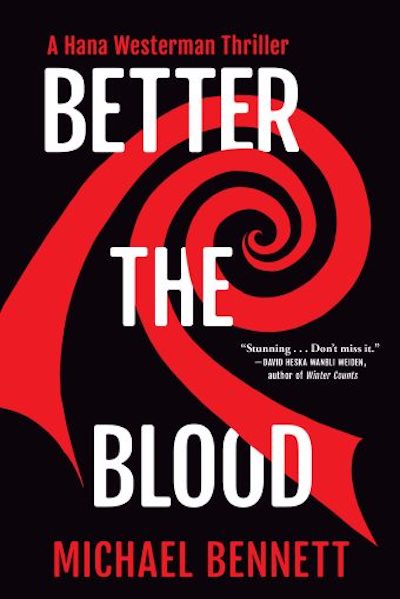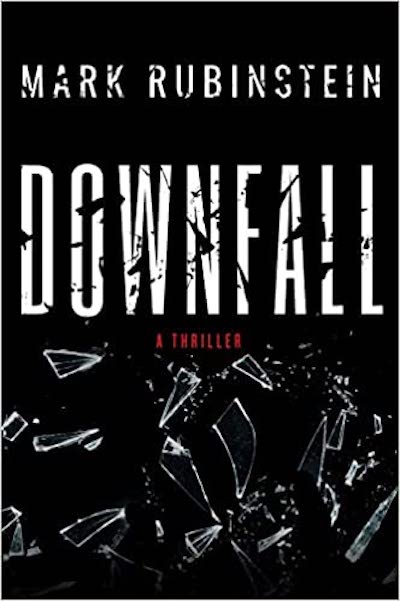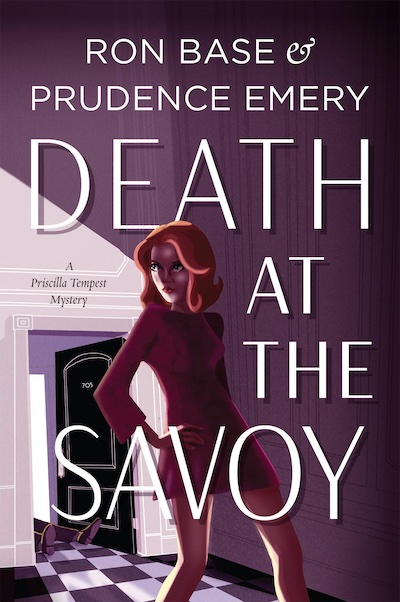Crimes and investigators that could not be more different collide in Donlea’s immersive thriller. The first crime is the obscure possible suicide, possible murder of a man who’s found hanging off his balcony in the Catskills area of upstate New York on July 15, 2001, and the other the murder of thousands in downtown New York City 27 days later. The investigators are Avery Mason, a glamorous, up-and-coming TV journalist and Walt Jenkins, a burned-out, former FBI agent who’s now living in Jamaica and steadily becoming an expert on rum. Fate brings the crimes and sleuths together when, twenty years later, a stunned medical examiner finds a match to a body part from the wreckage of the World Trade Center. It’s from a woman who was under investigation for the killing of the hanged man, and Walt, who investigated that hanging in 2001, and Avery, who’s breaking the story of the 9/11 victim and hoping to prove the woman’s innocence, are pushed together (not exactly against their will, it turns out) to get to the bottom of the decades-old case. There are many twists here, both in the backgrounds of the characters and in the secrets that are revealed. The tragedy of 9/11 is not taken lightly, rather it forms a fittingly sober backdrop to the torment faced by the characters in the past and today. For a readalike, try a series character who on the surface is nothing like Walt Jenkins, but who has the same kind of rock-steady kindness and intelligence: Kate Atkinson’s Jackson Brodie
Mystery & Detective
Living a remote, punishing existence—he even asks to have the power to his cabin switched off in the Minnesota winter—former homicide detective Max Rupert has run away from his job more than retired from it. All readers know for most of the book is that he shoved a man through a hole in a frozen lake and is living with the aftermath of that choice. But why he did it, and whether he can allow himself to rejoin society, is a mystery. On a visit to town he runs into Lyle Voight, the former sheriff who’s been voted out of the job in favor of a corrupt newbie, and the man’s daughter, Sandy, and grandson, Pip. Seeing a family gives Max an unfamiliar and slightly disturbing feeling—happiness—and he’s helplessly drawn to jump in when, shortly after, Sandy and Pip vanish suddenly from their home. Puzzlingly, all signs point toward a planned absence. Next, we meet the sinister—and I mean sinister—duo behind the disappearance, and soon the chase is on, helped by Max’s former partner, Niki Vang. This thriller does a remarkable job of contrasting evil and love throughout, in the characters’ actions and dialog as well as in Max’s inner struggle between the positive force that keeps him going and the weight of self-loathing that holds him back. The three-dimensional portrayal of Niki, a wise-cracking and kind Vietnamese American detective and love interest, is a bonus. This is one to get lost in.
More than most other kinds of mysteries, successful cozies rely on a strong community that we would like to return to and a cast of characters we would like to know more about—and Blacke’s first in this new series succeeds delightfully at both. Juni Jessup is back in Cedar River, Texas after six years in the Pacific Northwest. Laid off from her tech job and a bit homesick, she’s returned mainly to join her two sisters as partners in Sip & Spin, a record store and cafe. But at their blow-out opening party, the body of a young woman is found in the supply closet. Very dead. That’s bad enough, but she’s also clutching Uncle Calvin’s card. Calvin is arrested, the sisters put their shop up for collateral, then Calvin skips bail and disappears. This leaves the sisters with a double-headed mystery: who killed the victim and where in the world did Calvin get to? This is your sort of poke-around mystery, in which Juni bikes around town asking questions, although the way gossip flies in Cedar River, all you really need to do is stand in one place long enough and listen. But Juni’s a great storyteller, the small-town Texas-ness of it all is lots of fun, and there’s not one but two possible romances. What else could you ask for?
Some mysteries go deep into the lives of just a few characters. Others go wide, spreading the investigation across a community. Keigo Higashino, in his Kyoichiro Kaga police procedurals, manages to do both. Here a businessman is found dead on Tokyo’s famous Nihonbashi bridge, a knife in his chest. But he was attacked elsewhere and somehow managed to stagger to the bridge, dying beneath the statue of a kirin, a winged beast of Japanese mythology. Hours later, a young man is in a car accident nearby—he was killed trying to avoid the police—and the businessman’s wallet is found on his person. Sounds like a wrap, doesn’t it? Except we’re in the hands of Detective Kaga, and despite pressure from the higher ups, he isn’t ready to sign off on the case. Kaga investigates the lives and families of everyone involved, unpacking their secrets, holding them up to the light, seeking connections. Eventually, the narrative opens up, like one of the many origami cranes that end up being so important to the story. It’s a delight to again encounter the mysterious but brilliant Detective Kaga.
“The right choice can be made to seem impossible, especially for a woman on her own,” learns “spinster” Violet Manville during her work as Miss Hermione, agony aunt for A Woman’s Place magazine. The usual Miss Hermione is Violet’s actual aunt, Adelia Henrietta Georgina Tylney Manville. When the feisty lady sets off from England for the Continent with her gentleman friend, she reveals that she is the mysterious author of the popular column and helpfully sets the shocked Violet up with folders of advice that have labels such as “Comportment,” “Mourning,” and “Mothers in Law.” Violet makes the right choice for herself, breaking out of her life as the studious, ignored, half-sister of the beautiful, flighty Sephora, who has an inheritance, which for a woman in 1865 is everything. Being unmarriageable frees Violet from some of the social duties Sephora adores, allowing her to visit a young woman who wrote to Miss Hermione for help. But when Violet reaches Ivy Armstrong’s village, she finds a very different scene from what she expected, and a murder investigation is soon afoot. Further choices abound, with Hastings keeping her hero within the boundaries of what a Victorian lady can do, while showing what life is like within those strictures and what happens when a woman has her freedom of choice stolen. Readers will empathize with Violet and even with her sad, social-climbing sister, both of whom are doing their best with what life’s dished out. Funny at times, this series debut is also an adventurous and thoughtful look at a time when women’s lives were on the brink of change. And it’s a puzzling whodunit to boot.
Major events in Swedish history that caused the nation to see itself anew parallel the events in this book, with the town of Halmstad a microcosm of the larger turmoil. As the book opens, a woman is found in the back of a car, raped and murdered. The crime will always be linked in the minds of locals with the (real-life) assassination of Sweden’s prime minister, Olof Palme, which happened on the same night, February 28, 1986. Halmstad is in a staid area, where everyone knows everyone, the kids play soccer with a beloved coach, and what farms are left are the quiet backbone of life. The death of Palme and of Stina Franzén, the murdered young woman, cause a kind of shocked introspection whose weight pervades Carlsson’s writing. Horror surfaces once again when another woman disappears the day before the relatively nearby Chernobyl nuclear reactor explodes on April 26, 1986. Chernobyl is “on the other side of freedom,” but even given that the crimes are in much-more-open Sweden, investigator Sven Jörgensson can’t catch the man who taunts him with phone calls and promises there will be more. As years go by, Sven’s son becomes involved in the impossible puzzle, as does a writer who grew up locally and who has returned to write about the crimes (and who narrates this tale). Following events over several decades brings us to care for the characters as much as the outcome of this case, one that’s as unpredictable as it is tragic. The author’s U.S. debut (he’s the youngest winner of the Best Swedish Crime Novel of the Year, for The Invisible Man), this is an absorbing and thought-provoking puzzle.
A tight and tense police investigation that brilliantly integrates Māori culture and history. When a gruesome murder in contemporary Auckland, with the victim found hanging in a secret room within an abandoned building, leads to another murder, Māori detective Hana Westerman realizes she may be on the trail of New Zealand’s first serial killer. But what connects the victims? A daguerreotype from New Zealand’s bloody, colonial past—plus texts and images the killer sends her—provide Hana with a terrifying road map to what’s ahead if she can’t stop him. Through Hana, author Michael Bennett (Ngati Pikiao, Ngati Whakaue) connects the past and the present, both in New Zealand’s history and within Hana’s own life. To find the killer; keep her family safe, especially her university-age, politically charged daughter; and face a painful incident from her youth, Hana must undergo a transformation. And the woman we meet at the end of the narrative is indeed far different from the one who begins it. This is crime fiction at its best: well-paced, richly characterized, and fearless in confronting the pain of colonialism.
Veteran NYPD Detective Art Nager and his newbie partner, Liz Callaghan, might have the makings of a cold case on their hands. Or two cold cases…nobody’s sure. Arriving at his Manhattan Upper East Side office, Dr. Rick Shepherd is stopped by police. Somebody’s been shot in the back, on the steps. When the victim is shown later on the news, Rick and his wife are shocked: he could be the doctor’s twin. In a lengthy, wryly funny scene, we see a jaded cop brush off the coincidence, but it doesn’t seem so random the next day when Rick’s father is also murdered, also shot in the back. The elder Dr. Shepherd was on a house call. But maybe it was more. Or could it be that a low-life whom Rick’s sister dated had enough of her family’s dislike? Perhaps a disgruntled patient? And is the second murder connected to the first, and to the creepy silent phone calls to Rick’s home? The detectives have their work cut out, and they portray the best of a police-procedural duo: camaraderie, doggedness in pursuit of the truth, and revelations of past relationships on and off the job. Narrator Nager’s growing feeling that this relationship could become more adds that something extra that makes this read comforting as well as a great puzzle. Did I mention the closing twist?
We’re in the mad, mod, mini-skirted world of London, 1968—the height of the swinging sixties. Where better to catch all the action than from a perch at the world-famous Savoy Hotel? Nowhere, unless you are young Priscilla Tempest, head of the Savoy’s press office, and arrive at work only to discover that your date from the previous night—Mr. Room 705—has been found quite dead. Odd, since when you left him he was a little too alive. Plus, it turns out that he’s a bit of an arms dealer, and not the caviar dealer he claimed. So begins Prudence’s crusade to clear her name, if not her reputation, keep her job, and maybe even stay alive. This book is outrageously funny, peppered throughout with all-too-realistic cameo appearances from the likes of Noël Coward, Richard Burton, Elizabeth Taylor, and even a member of the royal family. Add to the mix a Soviet spy, a louche but handsome reporter, a fanatical monarchist from Scotland Yard, a Spanish gigolo, and serve it all accompanied by a nice flute of Bucks Fizz—that’s what the British call a Mimosa. And who said you don’t learn from fiction? Anglophiles, lovers of comic crime fiction, and anyone in need of a break from the present day will adore this book. I’m off to The Carlyle for a Fizz myself, don’t bother ringing until Book 2 is out.
A high energy foray into cryptocurrency and government corruption. At the center of the novel is petite, running-suit clad, 75-year-old Ethel Crestwater, a former FBI agent who operates a boarding house in Arlington, VA for law enforcement folk who need a temporary home in the DC area. Never married and with no kids, Ethel starts every morning in her basement with a round of RBG’s exercises. The latest addition to her clan is Jesse, a remote relative, but her only relation, who’s moved to DC for graduate work in computing. When one of “her” agents is gunned down in front of her house, Ethel, assisted by double-first-cousin-twice-removed Jesse, catapults into action. It helps that Ethel knows—and is owed favors by—a range of characters, from the director of the FBI to the Secret Service to the local Arlington detective; part of the fun of the book is watching the territorial struggles among the different agencies. Yes, wise-cracking Ethel is highly entertaining, but to de Castrique’s credit, she’s no cutesy stereotype of a gun-wielding grandma. She’s got her own story, and it’s a complex one. Ethel and sidekick Jesse make a great team; how about Jesse drops out of school and they take up sleuthing full time? Bonus: this book is a helpful primer for the uninitiated on cryptocurrency and how it works. Readers who enjoy this novel will also appreciate Deanna Raybourn’s Killers of a Certain Age.





